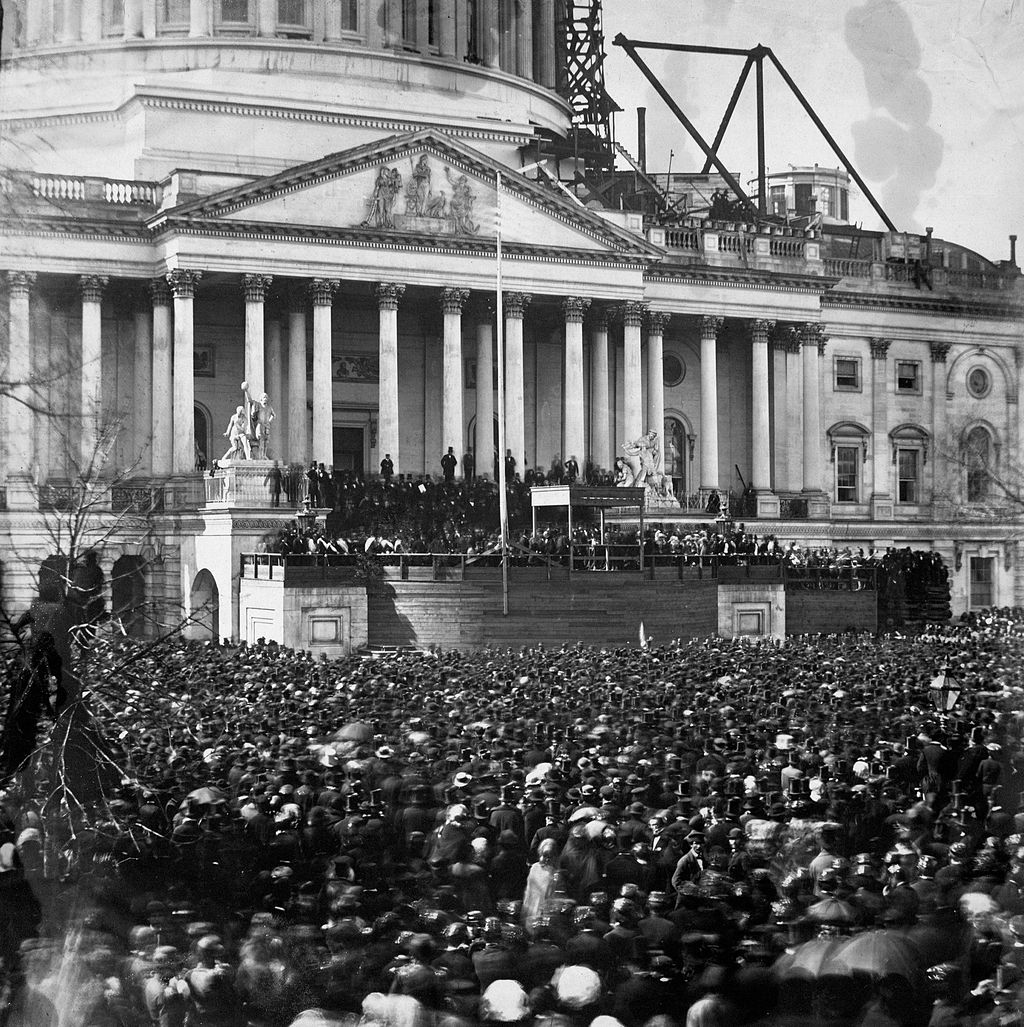Conquer It
By 1860, the United States was nearly broken in two. The North strove to maintain the nation as one “union” of states, and many northerners wished to limit the spread of slavery or abolish it altogether. The South chose to retain slavery, and many wanted it to spread to new states. Eventually, a series of events would lead to the secession of eleven southern states from Virginia to Florida, and the formation of the Confederate States of America. The last step in this process towards secession was the election of Abraham Lincoln from the new Republican Party as president in 1860.
Like many politicians, Lincoln was in the difficult position of trying to find another compromise to avoid war. Many times Lincoln admitted that each side had established their right to support or oppose slavery, and the Constitution did not clearly support either side. In his March 4, 1861, inaugural address, he identified the importance of staying connected as a union and the issues that threatened the union and would result in the Civil War.

This photograph shows the first inauguration of President Abraham Lincoln on March 4, 1861.
Image credit: Unknown via Wikimedia Commonsopens in new window.
Read the passage taken from Abraham Lincoln’s First Inaugural below and complete the activity that follows.
Again: If the United States be not a government proper, but an association of States in the nature of contract merely, can it, as a contract, be peaceably unmade by less than all the parties who made it?
The Union is much older than the Constitution. It was formed, in fact, by the Articles of Association in 1774. It was matured and continued by the Declaration of Independence in 1776. It was further matured… by the Articles of Confederation in 1778. And finally, in 1787, one of the declared objects for ordaining and establishing the Constitution was "to form a more perfect Union."
It follows from these views that no State upon its own mere motion can lawfully get out of the Union; that resolves and ordinances to that effect are legally void, and that acts of violence within any State or States against the authority of the United States are insurrectionary or revolutionary, according to circumstances.
Plainly the central idea of secession is the essence of anarchy. A majority held in restraint by constitutional checks and limitations, and always [expressing] popular opinions and sentiments, is the only true sovereign of a free people. Whoever rejects it [moves] to anarchy or to despotism. Unanimity is impossible.
Physically speaking, we can not separate. We can not remove our respective sections from each other nor build an impassable wall between them. A husband and wife may be divorced and go out of the presence and beyond the reach of each other, but the different parts of our country can not do this. They can not but remain face to face, and intercourse (contact), either amicable or hostile, must continue between them. Is it possible, then, to make that intercourse more advantageous or more satisfactory after separation than before? Can aliens make treaties easier than friends can make laws? Can treaties be more faithfully enforced between aliens than laws can among friends? Suppose you go to war, you can not fight always; and when, after much loss on both sides and no gain on either, you cease fighting, the identical old questions… are again upon you.
Source: Joint Congressional Committee on Inaugural Ceremonies opens in new window
To read the entire speech, visit this page from the Joint Congressional Committee on Inaugural Ceremonies opens in new window








